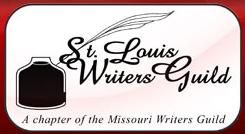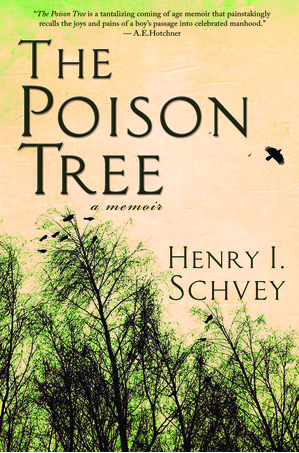Share the post "Writers in the Park, Part I"
by Tif Sweeney
 It was a beautiful day on Saturday, August 25, when fans of the written word gathered in Kirkwood Park for the Third Annual Writers in the Park, courtesy of the St. Louis Writers Guild. With a record number of attendees of all ages, the event provided four hours of workshops, featuring a multitude of topics for all levels of writers. Unfortunately, being one person without a time turner or the ability to time walk, I was only able to attend one session at a time; this was one day I wish I had the ability to be in two places at one time!
It was a beautiful day on Saturday, August 25, when fans of the written word gathered in Kirkwood Park for the Third Annual Writers in the Park, courtesy of the St. Louis Writers Guild. With a record number of attendees of all ages, the event provided four hours of workshops, featuring a multitude of topics for all levels of writers. Unfortunately, being one person without a time turner or the ability to time walk, I was only able to attend one session at a time; this was one day I wish I had the ability to be in two places at one time!
During the first session, attendees had the choice to hear Shawntelle Madison and Jeannie Lin discuss “Finding an Agent and Publisher” or Kate Klise “Calling All Young Authors! Come Learn How to Write a Book!” I decided to soak up some wisdom from the former. Madison and Lin shared the mic, telling their very different stories of writing their first novel through publication. From their tales, I discovered that everyone’s experiences differ. Some authors find agents quickly; others do not. Some books move through the ladder of the publishing world quicker than others. However, no matter the experiences, an author must develop a thick skin, take the initiative, and be an advocate for herself (or himself). Here is a small list of recommendations from Madison and Lin when working through the process:
- Determine your genre. Knowing your genre can help in finding the right agent to query and ultimately represent you and your work.
- Research your genre. Know what is popular. Know what books and authors are similar to your work. Know the agents that represent the work and authors that are similar to your own.
- Get involved. Join organizations that reflect your genre (i.e., Romance Writers of America for those who write romance), local writing groups (i.e., St. Louis Writers Guild), and find trusty individuals to help in critiquing your work. Not only can you find a great support network by getting involved, but you can also stay up-to-date on industry and genre news.
- Utilize your resources. One online resource that can assist in your agent search is QueryTracker.net, a place where you can do more research on agents, their current client lists and genre specialties, as well as track your own queries. In addition, be sure to confirm that your agent is a reputable one via Association of Author’s Representatives (AAR).
- Learn from rejections. Finding an agent to represent you and your book is a rough road in which rejections can and will occur at any time, from the initial inquiry to even the editorial stage. Each rejection, particularly those that contain constructive feedback, can help to strengthen your current and future work.
- Keep working. Madison and Lin both emphasized that it is important to keep working, keep writing, and do not get caught up in just one book. Start your next one and get your new ideas on paper. In Madison’s words, “Be hungry to write.”
Madison and Lin opened my eyes to the publishing world in many ways, but also provided wonderful practical advice that I could walk away with in my writing toolbox!
The second session offered three different options for aspiring writers: (1) W.E. Mueller and Kelly Cochran of Sisters in Crime Greater St. Louis Chapter, speaking on “Crime & Mystery, Writing the Novel or Short Story,” (2) T.W. Fendley & Jennifer Stolzer of St. Louis Writers Guild, discussing “Spec Fiction: From the Final Frontier to Middle Earth,” and (3) Kate Klise continuing her conversation on “Calling All Young Authors!” Fendley and Stolzer had me at Middle Earth, so I was quickly swept up into listening about the history and sub-genres of fantasy and science fiction. As Madison and Lin mentioned in the previous session, it is important to know your genre, but with fantasy and science fiction, this can be a difficult one to compartmentalize! From hard science fiction, cyberpunk, apocalyptic, and space opera to fairy tale fantasy, paranormal romance, steampunk, and many, many more, one can find overlap among the different sub-genres and simply not know where a story truly falls. The one constant that tends be common among them all, however, is that science fiction/fantasy tales tend to be longer (i.e., 100,000-120,000 words), yet readers do not want to pay more. Ultimately, the bottom line is difficult to break even or make a profit from the publishing standpoint.
My favorite part of the speculative chat was when Stolzer shared “Stories We’ve Seen Too Often” as it appeared in Strange Horizons, an online speculative fiction magazine. A few of my favorites are:
- The alien threat was a hoax to unite humanity.
- The reputedly inhospitable Outdoors is not only inhabitable, but markedly better.
- Kids with special abilities are kidnapped by the government and imprisoned and tested in a lab.
- It was all just a dream/game simulation.
- At the end of the story, one of the characters starts to write This Very Story we’re reading.
For more information and to enjoy the full list of stories too often seen, I encourage you to visit Fendley’s recent post on The Writers’ Lens, Spec Fiction & the Accidental Horror Writer.
After only two sessions, I found myself having a great time talking books and writing with fellow word lovers. I could not wait to find out what was going to come in the second half of the workshop! Stay tuned to find out more!
For more information on the authors and contributors from Writers in the Park, check out the following websites:


